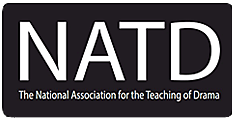The Drama of Drama by Chris Green
Chris Green is Head of the English and Drama faculty in a large secondary school in the UK. He is Principal Examiner for the Shakespeare component of the A-Level in English Literature at a major UK awarding body. He is a Trustee & Director of the British Shakespeare Association, and is Chair of the BSA's Education committee. His most recent publication was an edition of The Merchant of Venice for HarperCollins. Chris is a member of the Executive committee of the National Association for the Teaching of Drama.
"School Drama is in crisis!" we are being told. "What - again?" might well be your response. Certainly the subject - along with its sister discipline English - has been through endless trials and tribulations during the period of pedagogical uncertainty which many commentators have identified since the establishment of the National Curriculum at the end of the 1980s. But (whisper it...) is there something about Drama educators which means that we enjoy - as we do in the plays we teach and direct - the crisis, the tension, the confrontation? It would be a parody, and completely unjust, to resort to this view, but could it be that the drama of Drama is something that comes with the territory?
Drama, English, the Arts and the Humanities seem to be fighting back. The 'A' in STEAM might have all-but-disappeared (we are back to the supremacy of STEM again, it seems) but a clamour of voices seems to be insisting that Drama and the Arts are once again in a position - indeed they are required - to assert their essential importance within the education system. And that means that creativity, the imagination, collaboration, problem-solving (all skills which young people entering the uncertain world of work today - indeed the uncertain world generally) need to be foregrounded once again in our subject. The nurturing 'play' experienced by young people in Drama is no longer a luxury; it has become a necessity. And all this in spite of politicians (again) attacking the place of the Arts in society, and some universities removing funding for their Humanities courses.
Organisations such as NATD, National Drama, the National Association for the Teaching of English, and the English Association are starting to make their voices heard. Creativity is not just for post-COVID recovery in the classroom; it is for life! Events such as the recent Shared Futures conference in Manchester have seen something of a rising up against the passive and depersonalised, preserved and inert view of Arts education which many perceive now to be normalised by education authorities (witness the recent controversial Ofsted English curriculum research review document).
It is easy, and tempting, to knock the 'knowledge' curriculum, to point to a 'neoliberal' agenda of cultural capital in schooling which - critics claim - is not only exerting a covert social agenda ("Don't give them the chance to think; remind them of their place in the social structure") but also exacerbating the rise in mental illness among young people. Yes - we can roll out appropriate and helpful quotations from Einstein (and others) to support this view -
Any fool can know. The point is to understand.
And -
I am enough of an artist to draw freely upon my imagination. Imagination is more important than knowledge. Knowledge is limited. Imagination encircles the world.
Of course it is a parody, though, to present the currently fashionable 'knowledge' version of education as a kind of Pygmalion pedagogy. Drama educators will know the outcome of that myth in George Bernard Shaw's version, but they should also be aware that - in its musical form as My Fair Lady - the story has enjoyed some success in a recent Broadway production (which transferred to the West End this summer).
The argument needs to be more balanced, more nuanced. In our age of extremism, of binary views, of conspiracy theories, we need to find a half-way house. Our students deserve that. Perhaps it is Dorothy Heathcote herself (of course) who found the right words to express this: May your paths be always of your own making and not copies of others.
The recent excellent book Reading Shakespeare through Drama by Jane Coles and Maggie Pitfield (in the CUP Cambridge Elements series) will perhaps serve as a summation of this artistic and pedagogical revolution. The authors adopt an unashamedly Vygotskian approach to the teaching of Shakespeare (in both Drama and English) in the classroom, with bold claims that creative, active responses from children - when combined with the inherently ambiguous, subtle, 'non-binary' material in Shakespeare's scripts - can make a contribution towards a future world where intolerant, extremist and populist attitudes become redundant (no less!). On a practical level, some school senior managers may take some persuading about this, but enlightened educational institutions have always recognised the importance of creativity for - amongst other things - enabling students to access higher order thinking skills (and thus improve public examination results).
So, maybe there is a crisis, but perhaps it is one we can indeed enjoy - knowing that the solution may be found (partly) in visionary Drama pedagogy. Haven't the best Drama practitioners always known this?
